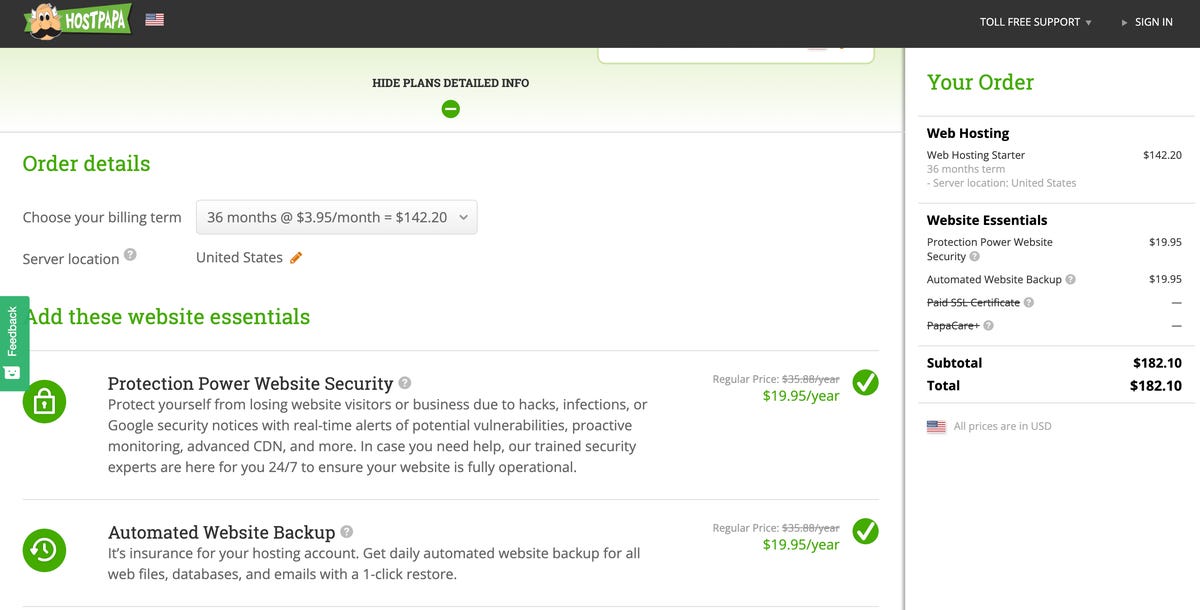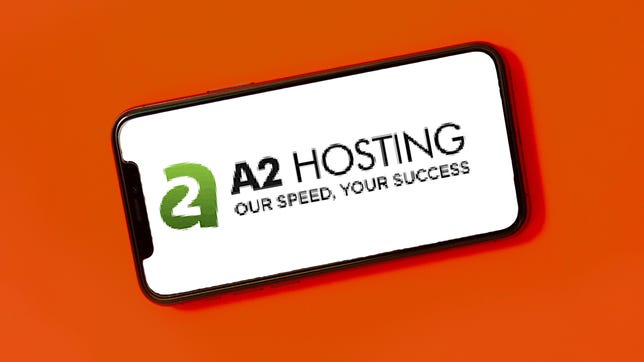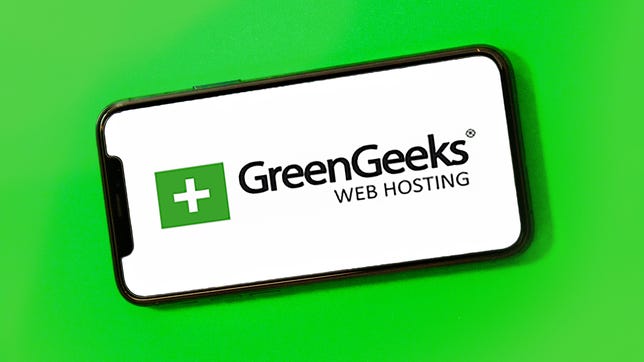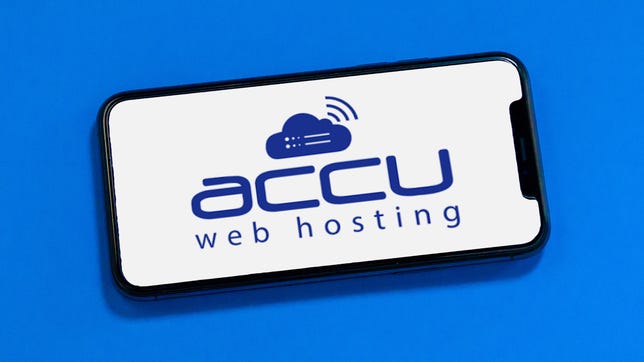
There are a lot of great reasons to start your own website. Whether you’re looking to create your own blog, kick off a side business, or build a portfolio, there’s no better time than right now to build a website. It’s an exciting process, too. Picking your own personal design to represent yourself is one of the many exhilarating parts of building your new website. However, there’s a lot more to it than just clicking around and hitting save when you’re happy.
First off, you need to have an idea for what your site should contain or be about, and you have to choose a company to house your website. The number of web hosting services can be confusing and the choice can be hard. So we looked over the data for 22 web hosting services to make things a little easier on you.
While we didn’t test the services, we did carefully examine each service’s offerings and ranked them according to essential web hosting features. Here’s what we looked for to determine the best web hosting services. You can also check out CNET’s 11 things to know about web hosting for more information about these and other features.
- Hosting plans: We checked to see if the service offered shared, VPS and dedicated hosting plans. Inclusion of all three plan types allows customers to scale their plan up as their site grows.
- Security features: Services need to include some basic security features such as SSL certificates, DDoS protections and backups to protect your data as well as your visitors’. The best web hosts do this at no extra charge.
- Uptime of 99.9% or higher: An uptime of 99.9% or higher ensures your site won’t go down for more than 20 minutes a month, so you keep losses of readers and sales to a minimum.
- Customer support: All services offer some kind of customer support. Some say they offer customer service 24/7, but they mean you can email them any time. That’s a good start, but what if you have an issue that needs immediate attention? Some offer live chat which is better, and others offer phone support which is best.
The best web hosting services meet all four of those criteria. If a service falls short on one or more of those measures, you’ll find it in our list of other web hosting services to consider or our list of additional web hosts we looked at.
For some important terms to know about web hosting, jump to the bottom of this article.
Note: Pricing for web hosting is a bit tricky to follow. Listed prices are generally introductory rates attached to contracts that usually last a year or more and renew at the regular rate at the end of the contract. And as with other services that use introductory rates to lure in customers, the regular rate is usually much higher — double your intro rate, or more. These contracts are also usually paid upfront rather than month-to-month, even though companies will list them as monthly costs. Again, make sure you check the renewal price, as most services say they auto-renew contracts to ensure sites stay up at all times. Actual month-to-month plans can cost at least three times as much as longer contracts.
Best web hosting services
Sarah Tew/CNET
Pros:
- 24/7 “Guru Crew” customer support by chat, email or phone
- Free site migration when coming from another service
- Servers are physically secure on site
Cons:
- Lowest prices require three-year contracts
- Some plans don’t offer enough to justify higher prices
Hosting plans
A2 Hosting offers shared, VPS, dedicated, WordPress, reseller and cloud hosting, including tiered options within each plan. Shared hosting, for example, offers plans labeled Startup, Drive, Turbo Boost and Turbo Max. These additional plans give customers more options to choose from to better fit their needs, and allow customers to scale their operation as needed.
Security features
Each plan comes with security features like an SSL certificate, dual firewalls, virus scanner and brute force defense. Each plan comes with a Patchman enhanced security tool, which regularly costs about $25 a month, as well as DDoS protections that can detect DDoS attacks as soon as they happen to help keep your site safe. A2 Hosting also boasts about the physical security of its servers — in order to access them, someone needs to have two separate key cards to enter the parking lot and the server center.
Uptime
A2 Hosting has a 99.9% uptime commitment. An uptime of 99.9% means your site shouldn’t be down for more than nine hours a year, which is the industry standard.
Customer support
The real distinction for A2 Hosting is its commitment to customer support. A2’s “Guru Crew” is available by chat, email or phone 24/7. And if you want to figure something out without talking to anyone, A2 Hosting has a large Knowledge Base filled with information to help you develop and grow your site.
Other features
If you are looking to switch web hosting service providers, A2 Hosting offers free site migration. The average cost of a site migration in 2021 was between $300 to $400, making this a generous offer.
Pricing
A2 Hosting pricing is about average at first glance, but the lowest prices also come with a three-year contract, so to get the lowest price you are locked into this service for a long time. Some of the service’s tiered plan options might not offer enough to justify the price increase, as well. The Turbo Boost and Turbo Max shared hosting, for example, are $7 and $13 per month, respectively. The plans appear to have two differences: Boost has 2GB of physical memory compared to the Max’s 4GB. In addition, Max offers “5X More Resources” by using nonvolatile memory express drives, which are faster than solid-state drives. Nonvolatile memory express drives don’t seem much faster than SSDs on paper, but if you’re trying to sell something in real time online every second — or millisecond — counts.
Sarah Tew/CNET
Pros:
- 90-day money back guarantee
- Many customer service options
- Free website builder
Cons:
- US servers only
- Month-to-month payment plans not available for all plans
Hosting plans
InMotion Hosting offers shared, VPS, dedicated, WordPress and reseller hosting with different tiered options for each type of hosting. InMotion Hosting also offers hourly managed hosting services. These services can be purchased for one, two or three hours for $40 to $100 per month, or outside of a plan at $75 per hour.
Security features
Each plan comes with free SSL certificates, DDoS protections and hack and malware protections. Automatic daily backups are also available for some plans.
Uptime
InMotion Hosting offers 99.99% uptime, placing InMotion Hosting above the standard in terms of uptime. Customers should expect less than an hour of downtime per year, compared to nine hours for companies that only offer 99.9% uptime.
Customer support
InMotion Hosting’s customer support offers more ways for customers to contact them than many other services. Customers can contact a customer support representative by phone, chat, or email 24/7, they can file support tickets or Skype with a representative. InMotion Hosting also offers customers access to a database of instructional posts, as well as a community forum customers can look through for the answer to a question if you can’t find it anywhere else.
Other features
Most web hosting services offer a 30-day money back guarantee, but all InMotion Hosting plans come with a 90-day money back guarantee. That makes InMotion a great option for anyone who’s trying out a website for the first time but isn’t sure if they’re ready for a longer commitment.
Pricing
As with other web hosting services, the listed price is only applicable before the renewal cost. These can be confusing when comparing prices since some plans appear to cost the same despite one offering more perks. For example, the shared hosting Launch plan costs $5 a month with a three-year contract and the shared hosting Power plan costs the same for the same contract length but has more features — seems like a no-brainer to go with the Power plan, right? However, after the contract ends, the Launch plan renews at $12 a month and the Power plan renews at $16 a month, leaving subscribers paying more for the Power plan.
Sarah Tew/CNET
Pros:
- Extensive security features, including backups
- Unlimited traffic, so no need to scale up plans to handle additional traffic
- 99.99% uptime guarantee
Cons:
- Website builder costs extra
- Plan prices increase, sometimes by huge margins, over time
Hosting plans
Ionos offers shared, VPS, dedicated and managed and unmanaged WordPress hosting. The company also differentiates between hosting plans meant for smaller and larger organizations to help customers better understand what plan is best for them.
Security features
Ionos offers security features that go beyond what other web hosting services offer. All plans include SSL certificates, malware scans and DDoS protections. Some plans also help repair damage malware might cause on your website. Backups at least once every 24-hours are also standard with each plan, and each backup is held for 20 days. A full set of a customer’s data is also stored in two separate data centers as a security measure, that way customers will always have access to their data, even if one data center is brought down by a cyberattack.
Uptime
Ionos has a 99.99% uptime guarantee, which is a higher guarantee than most other web hosting services. Battery-operated power supplies and backup generators help maintain power to Ionos data centers so your site and services stay online even if its data center loses power.
Customer support
Support is available any time, either by phone or chat. A directory also provides customer support numbers for customers in 14 different countries. Ionos also offers a personal consultant who will be your main point of contact if you need help with your site. A personal consultant and phone numbers for different support centers around the world gives Ionos customers more ways to get help compared to some other hosting providers.
Other features
Ionos offers a status page to alert customers when services go down or are being repaired. The page also logs the times when services go down and are brought back up, and it lets customers know of any scheduled maintenance.
Pricing
Ionos’ prices start lower than most other web hosting services for similar services. However, prices rise — shared and WordPress hosting rise by over 1,000% — after a certain amount of time. That means Ionos is a good entry point for web hosting, but it may not be the best long-term home for your website if cost is your primary concern.
- Shared hosting starts at $0.50 a month for 12 months and rises to $10 a month afterward.
- VPS hosting starts at $2 a month.
- Dedicated server hosting starts at $45 a month for six months and rises to $65 a month afterward.
- WordPress hosting starts at $0.50 a month for 12 months and rises to $8 a month afterward.
Sarah Tew/CNET
Pros:
- Some monthly plans relatively affordable compared to other providers
- Offers cyber insurance as an add-on
- Free website builder with each plan
Cons:
- Price almost doubles with renewal of some plans
- No 24/7 phone support
Hosting plans
NameCheap offers shared, VPS, dedicated, WordPress and reseller hosting. The plans offer tiered options, and the differences in plans are spelled out and easy to follow. Features shared across plans are easy to recognize, so you don’t have to read too deep into plans.
Security features
Each NameCheap plan comes with a free virus scanner, two-factor authentication and DDoS protection to help secure your data and the data of your visitors. SSL certificates are also free for one year, but then are an additional cost, starting at $6 a year. NameCheap also offers optional cyber insurance at an extra cost in case your data falls victim to a cyberattack. Cyber insurance plans start at an additional $6.50 a month and cover things like legal costs, damage repair and fines that could spring from a data breach. However, cyber insurance is currently only available in the US.
Uptime
NameCheap has a 99.9% uptime guarantee for VPS and reseller plans and 100% uptime guarantee for most shared, VPS and dedicated plans. NameCheap explicitly states one dedicated server plan has a 99.9% uptime guarantee. If uptime does drop, customers are eligible for a service refund, which could give you a month of free hosting.
Customer support
NameCheap has 24/7 online chat support, ticket filing and database of informative and instructional posts and videos. However, there’s no phone support, which could make it difficult to get the help you need if something goes wrong with your site. NameCheap does have a Status Update section so you can see if others are experiencing a similar issue or not.
Other features
NameCheap offers some useful free and paid applications and services to customers. Some of the free applications include a logo maker, an online marketing tool and a graphic design tool. Paid applications and services include an online ID authentication tool and NameCheap Legal, which connects you to legal services to help tackle legal issues your business might run into.
Pricing
Some NameCheap plans are relatively affordable compared to the competition, especially monthly plans. Shared plans, for example, cost $3.88 on a month-by-month basis. Monthly plans from competitors can cost upward of $10 a month. Yearly contracts are less expensive than monthly plans, but the cost of those same plans can double in some instances upon renewal. One shared plan offers a two-year contract that costs a total of $37.88 (about $1.58 a month), but it renews at $84.88 (about $3.54 a month.) The renewal price is more, yes, but it’s still less than the renewal price for most other services. Dedicated hosting month-by-month plans appear less expensive with a starting price of $56.88 for your first month. This plan then renews at $80.88 a month. Dedicated hosting plans with a one-year contract appear more expensive than the month-by-month plan, but are less expensive over that 12-month period.
Sarah Tew/CNET
Pros:
- Offers a wide variety of plans for all needs
- Features website builder to help create your site
- Produces three times the amount of wind energy it uses
Cons:
- Phone support isn’t active 24/7
- Prices of some plans are above average
Hosting plans
GreenGeeks offers shared, VPS, dedicated, WordPress and reseller hosting plans. Each plan offers tiered options that let you scale up as your site’s needs grow. Some plans are managed, but at a higher cost. Each plan also includes a website builder so you don’t have to build your site from scratch.
Security features
Each plan includes a slew of security features like SSL certificates, DDoS protections, daily backups, malware cleanups and more to help protect your site.
Uptime
Like most web hosts, GreenGeeks offers a 99.9% uptime.
Customer support
GreenGeeks says it checks its servers every 10 seconds for any issues, while other services might check every 30 seconds, minute or longer. This means if your site runs into any issues, GreenGeeks might already be working on resolving it before you contact them. For more direct customer support GreenGeeks offers 24/7 chat support, but phone support is only active from 9 a.m. to midnight ET.
Other features
For every hosting account, GreenGeeks plants a tree, and GreenGeeks also creates three times the amount of energy used through renewable energy sources. Data centers contribute about 0.3% of global carbon emissions, according to the International Energy Agency, so GreenGeeks’ environmental commitment makes it a web hosting option that gives back.
Pricing
GreenGeeks’ pricing is average compared to other web hosting services. However, most of the lowest prices from GreenGeeks require a three-year contract paid in full upfront. Other contracts are available at an increased price per month, but must also be paid in full upfront.
Sarah Tew/CNET
Pros:
- Unmetered bandwidth and disk space
- Free site and domain transfers
- 45-day money back guarantee
Cons:
- Restoring data from backups costs extra
- Add-ons add up
Hosting plans
HostGator offers shared, VPS, dedicated, WordPress and reseller hosting plans with tiered options. Each plan comes with unmetered bandwidth and disk space so you can load as much data on your site as you want. That makes it a great option for anyone with lots of video, images or animated page elements.
Security features
HostGator offers free SSL certificates, DDoS protections and automated backups. After the backups are taken, HostGator scans the files and makes sure they are free of malicious code, and if any is located the files are quarantined. However, HostGator writes that anyone with “critical business information or important data are STRONGLY encouraged to seek a third-party backup service…” (emphasis theirs). Undermining your own backup system is an odd choice.
Uptime
HostGator has an industry-standard 99.9% uptime guarantee. Shared and reseller hosting customers can request a one-month refund if their uptime doesn’t meet that guarantee. However, VPS and dedicated hosting customers won’t get a refund if their uptime isn’t met. Instead those customers receive a prorated credit for how long the server was down.
Customer support
Customers can reach HostGator customer support representatives by chat, email or phone 24/7. A database also offers customers video tutorials, articles and guides. Not all services offer video tutorials, which could help solve an issue when it feels like talking to customer support over the phone or online isn’t helping.
Other features
HostGator offers a 45-day money back guarantee, which is above average when compared to most other web hosting services. The tutorials and walkthroughs available also make it easy for first-time site managers to get started.
Price
In addition to renewal prices jumping after a plan’s contract ends, add-ons can also significantly increase the price. Restoring backups, for example, costs an additional $25. So while, yes, HostGator offers automated backups, you still have to pay extra to access those backups, which makes it feel like backups are really an additional cost. This is certainly unusual.
Sarah Tew/CNET
Pros:
- Global data centers
- Cloud hosting offers 100% hardware uptime
- Free site migration
Cons:
- No unlimited data options on most plans
- Customer support phone service not available all hours
Hosting plans
AccuWeb Hosting offers shared, VPS, dedicated, WordPress, reseller and different cloud hosting options. There are options for cloud shared and cloud VPS hosting plans as well. Customers can also choose which of AccuWeb Hosting’s global data centers will host their data. This means if you anticipate most of your traffic to come from outside the US, you can choose to have your data in a different data center so your site loads quicker for non-US visitors.
Security features
AccuWeb Hosting offers free SSL certificates with each plan, free antivirus tools and free daily backups, which are an upgrade over the more standard weekly backups. Security tools like malware cleanup are also included.
Uptime
While AccuWeb Hosting guarantees an impressive 99.99% uptime, its cloud hosting plans offer 100% hardware uptime. However, just because the hardware is up 100% of the time, doesn’t mean your site is reachable all the time as well. If a server is up and running but the network is down, sure the hardware is fine, but your site still won’t be reachable.
Customer support
Customers can chat and file tickets with customer service 24/7, but phone services are limited. Right now, phone service is from 9 a.m. to 5 p.m. ET and based in the US and Canada, despite having data centers around the globe.
Other features
While other services limit the number of domains an account can have and usually only allow one domain with basic shared plans, AccuWeb Hosting gives you unlimited domains no matter what plan you sign up for. Other services also limit the number of email accounts basic shared plans can host, usually between one and 10, but basic shared plans with AccuWeb Hosting offer 150 business email accounts, so instead of sending an email from your personal account, you can send an email from your business account and give your message more credibility.
Pricing
Some AccuWeb Hosting plans, like shared plans, are a little higher than other services, while mid-level plans, like VPS plans, are cheaper than other services. If you choose a shared plan, but plan to scale up to a VPS plan, the price averages out.
Other web hosting services to consider
These services don’t offer one of the three hosting options, don’t include sufficient security features, an uptime guarantee or have some limited customer service options. The following services aren’t as robust as our top picks, but they’re still reasonable offerings.
SiteGround
SiteGround is a good option if you’re new to web hosting. It offers a 99.99% uptime, 24/7 customer support and plans include security features like SSL certificates, spam protection and a web access firewall to help protect your site. The company also has a 100% renewable energy match. However, Siteground offers shared, cloud, WordPress and reseller hosting options, so while these are good options to have, as your site grows and gains more traffic you might want to consider a service that offers VPS or dedicated hosting.
SiteGround plans start at $4 a month.
GoDaddy Web Hosting
GoDaddy Web Hosting offers unmetered storage and bandwidth with its plans so you can upload as many images and videos onto your site as you want. GoDaddy offers shared, VPS, dedicated and WordPress hosting plans, has a 99.9% uptime guarantee and 24/7 customer support. However, its security offerings are inconsistent. For example, SSL certificates are included with some higher-tiered shared plans, but not lower-tiered plans. If this is your first site, you might want to start with one of the lower-tiered options, but the lack of security features might push you to get a more expensive plan.
GoDaddy Web Hosting plans start at $6 a month.
Dreamhost
Dreamhost offers a 97-day money back guarantee, which is the longest money back time frame for a web hosting service on this list. If you’re new to web hosting, this time frame could give you enough time to make an informed decision about whether to stay with Dreamhost or not. It offers shared, VPS, dedicated and WordPress hosting plans, as well as an upgraded WordPress plan called DreamPress. Dreamhost has a 99.9% uptime guarantee, and plans come with security features like SSL certificates and malware remover. Dreamhost’s drawback is it doesn’t offer 24/7 chat or phone support. Chat support is available seven days a week from 5:30 a.m. to 9:30 p.m. PT, and phone support is only available upon callback request. Dreamhost does offer a step-by-step online guide with how to handle technical issues if you think you need tech support. The least expensive plan is also only for one month of hosting. Afterwards, the price renews to the standard rate which is about quadruple the starting price.
Dreamhost plans start at $2 a month.
Bluehost
Bluehost specializes in WordPress hosting and offers additional resources, like its Blue Flash customer support team, for anyone who chooses WordPress hosting. It offers shared, VPS and dedicated hosting as well as managed and unmanaged WordPress hosting. All plans include free SSL certificates, two-factor authentication and anti-spam protections. Bluehost customers can call or chat with a customer support representative 24/7. Bluehost doesn’t offer an uptime guarantee, but instead says it resolves issues within 15 minutes of them being reported. However, it doesn’t say how many issues you should expect on average. If your site is down for about 15 minutes a week, your site could be down for about 13 hours a year, which is higher than standard.
Bluehost plans start at $2.95 a month.
Hostwinds
Hostwinds offers unlimited storage and bandwidth, as well as unlimited free business email accounts with each plan. It offers shared, managed and unmanaged VPS, dedicated, reseller and cloud hosting plans, has a 99.99% uptime guarantee and offers 24/7 chat support. Hostwinds plans also come with free SSL certificates and free nightly backups. However, in comparison to other services, Hostwinds isn’t as forthcoming with information on other features or plan differences. Usually services show detailed charts that lay out what features come with plans. Hostwinds’ shared chart, for example, only lists bandwidth, disk space and how many domains come with each plan. Since bandwidth and disk space are unlimited, the only noticeable differences with each plan are the domains offered with each plan, the price and name of each plan.
Hostwinds plans start at $6.74 a month.
Glowhost
Glowhost’s worldwide data centers give you the flexibility to host your site from a certain region if you anticipate most of your traffic will come from that region. Glowhost offers shared, cloud VPS, dedicated, semi-dedicated, reseller and what Glowhost calls an elastic plan which it compares to a managed VPS plan. Security features include free SSL certificates and McAfee Secure, which starts at $30 a year, and customer support is available by phone or chat 24/7. Uptime is harder to discern though. Some dedicated hosting plans guarantee 100% uptime, but a Glowhost administrator in 2008 said it could range between 99.5% and 99.9%, which means your site could be down for at least a day over the course of one year.
Glowhost plans start at $3.47 a month.
iPage
iPage offers customers a free website builder to get their site up and running, as well as ecommerce tools to easily integrate into your site. iPage offers shared, VPS, dedicated and WordPress hosting plans, and has a 99.9% uptime guarantee. The service also offers 24/7 chat support, as well as phone support available seven days a week from 7 a.m. to 12 a.m. Eastern time. Each iPage plan comes with a free SSL certificate, but additional security features like daily malware scans and backups are not included. To fill those security gaps, iPage offers SiteLock, which starts at an extra $3.99 a month. iPage’s site is also hard to navigate in comparison to other services. For example, I had to scroll to the bottom of its homepage to find additional web hosting plans, like VPS and dedicated.
iPage plans start at $2 a month.
Mochahost
Mochahost, unlike most other web hosting services, locks in your price no matter how long you stay with the service. That means you don’t get a shock when your three-year contract renews at a much higher rate. Mochahost offers shared, VPS, dedicated cloud, WordPress and reseller plans, a 100% uptime guarantee and 24/7 live chat support. Phone support is also available on callback. Free SSL certificates are included in each plan as well, but other security features like spam and malware filters come at an additional cost or with more expensive plans.
Mochahost plans start at $1.95 a month.
HostPapa
HostPapa has global data centers, so you can choose the best data center to reach your visitors the quickest. Hosting options include shared, VPS, managed WordPress, reseller hosting and PapaCare Plus, which is similar to managed shared hosting. HostPapa has free SSL certificates, DDoS protection and other security features included in each plan, a 99.9% uptime guarantee and 24/7 phone, chat and email support. However, the lack of a dedicated hosting option means if your site grows too large, you will have to migrate to another service. Also, if you choose HostPapa, make sure to look over what you are buying when you’re checking out. As I went through checkout, some features, like automated backups and a security tool, were automatically added for an additional charge. When comparing plans, these additional features are mentioned and marked as included in higher-tier plans, but not in all plans.

Upon checkout, HostPapa automatically adds features to your cart at an additional charge. You can unselect these features though.
Zach McAuliffe/CNET
HostPapa plans start at $3.95 a month.
Hostinger
Hostinger offers a competitive price point. Shared and WordPress plans start at $2 a month, VPS plans start at $3.95 and cloud hosting plans start at $10 a month. There are also video modules on YouTube to show you how to, for example, build your WordPress site or how to change your domain name. Plans include SSL certificates and all servers have an advanced security module to protect your data. Some lower-tier plans offer weekly backups, while higher-tier plans offer daily backups. Hostinger has a 99.9% uptime guarantee, too. Customer support is limited, though. Live chat is available 24/7, as is email, but Hostinger doesn’t offer phone support.
Hostinger plans start at $3 a month.
WebHostingPad
WebHostingPad offers shared, managed and unmanaged VPS, WordPress and a mini hosting plan for smaller sites. Each plan includes free SSL certificates and SiteLock Lite, and WebHostingHub has a 99.9% uptime guarantee. Chat support is available 24/7, but phone support is only available Monday-Friday from 8 a.m. to 10 p.m. Central Time. WebHostingPad also offers competitive prices, starting at $1.99 a month, but they’re only available with four-year and five-year contracts. There is a mini plan that has a fixed price point of $3 a month, but it’s offered with a three-year contract, otherwise the price is $3.50 a month for one year or $3.25 a month for two years. Domains are also an additional $17 at checkout.
WebHostingPad plans start at $2 a month.
More web hosting services we looked at
Most of these services specialize in one type of hosting, like shared or WordPress, which means they’re not the best if you plan to grow your site. They also tend to be missing some security features and customer support options. However, they could be right for you and your needs if you have specific or smaller-scale hosting needs.
Liquid Web: No shared hosting. Security features include an integrated firewall and standard DDoS protections. Offers 99.99% uptime and 24/7 chat or phone support. Prices start at $25 a month.
Web Hosting Hub: Offers shared and WordPress hosting. Has free SSL certificates but other security features cost extra. Offers 99.9% uptime and has 24/7 chat and phone support. Prices start at $6 a month.
WP Engine: Offers WordPress hosting. Security features like free SSL certificates and daily backups. Has a 99.95% uptime guarantee and offers 24/7 chat and phone support. Prices start at $23 a month.
Kinsta: Offers WordPress hosting. Security features like free SSL certificates and automatic backups. Has a 99.9% uptime and 24/7 chat support. Prices start at $29.16 a month billed at $350 a year.
Pantheon: Offers WordPress hosting. Security features include DDoS protection and automated backups. Offers 99.9% uptime and customer support is available 24/7 via chat, phone or even Slack. Prices start at $41 a month.

Getty/Natnan Srisuwan
Web hosting services compared
|
Provider |
A2 Hosting |
InMotion Hosting |
Ionos |
NameCheap |
GreenGeeks |
Hostgator |
AccuWeb Hosting |
|
|
Superlative |
Best for customer service |
Best for first-time website owners |
Best security features |
Best cheap web host |
Best clean-energy web host |
Best for data-heavy sites |
Best for global customers |
|
|
Monthly shared plan starting price |
$3 |
$2.49 |
$0.50 |
$1.58 |
$2.95 |
$2.75 |
$5.49 |
|
|
Security features |
Great |
Great |
Great |
Good |
Good |
Good |
Great |
|
|
Uptime guarantee |
99.9% |
99.99% |
99.99% |
99.9% |
99.9% |
99.9% |
99.99% |
|
|
Customer support |
Great |
Great |
Great |
Good |
Good |
Great |
Good |
FAQ
If you’re confused about any terms above, I’m going to explain them in more detail here. You can check out CNET’s web hosting FAQ or tips to help secure your site for more information, too.
Web hosting is the act of storing a website’s data on a server or series of servers. Imagine a website as a work of art. That art needs to be housed somewhere for people to see, and web hosting is like a gallery where your art can be stored for others to view.

Data centers are filled with servers that can house hundreds of websites.
Stephen Shankland/CNET
What are the basic types of hosting?
There are three common types of web hosting: shared, virtual private server (VPS) and dedicated hosting.
Shared hosting is typically the most basic, and the least expensive, type of hosting. Continuing the art example, shared hosting is like a small gallery presented in a coffee shop. Yes, the art you created is there, but so is art by other people. Shared hosting is similar. You’re usually charged a few bucks a month to house your site, but you don’t get a lot of resources to help you take care of your site. These plans usually cost between $2.50 and $15 a month.
VPS hosting is a step up from shared hosting and is a little bit more expensive. Here, your art is stored in a gallery downtown. Other art is still stored and displayed alongside yours, but unlike shared hosting, each artist has their own booth within the gallery. With VPS hosting, you get more resources which allow you to handle more traffic and display more items. These plans usually cost between $20 and $80 a month.
Dedicated hosting is when you house your site on a whole server without anyone else. This is like having the entire art gallery to yourself. Everything there is your art and you get dedicated people to help take care of your art. These plans are the most expensive, but you get the most resources. Dedicated hosting plans usually cost between $80 and $300 a month.
What are some other types of hosting?
Some other types of hosting include reseller, cloud and WordPress hosting.
Reseller hosting involves subscribing to a web hosting service and selling that space to a person who wants to put a website online. Back to the art example: Imagine you don’t own any art, but you see a bunch of people who want to display their art. You have some money so you buy a space in a building for artists to display their work and charge them for using that space. That’s reseller hosting. You buy space on a server, not to use, but to resell to people in order to make money.
Cloud hosting is like having copies of your art featured online, instead of just physical locations. That way, even if one gallery is closed your art is still viewable somewhere else. Cloud hosting is similar in that your data is stored in a network of servers so if anything happens to one server, visitors can still view your site like usual. These are generally used by larger businesses and organizations.
WordPress hosting is optimized to use WordPress as a content management system. WordPress is a popular system used by many organizations, offering over 54,000 plugins to help build your site. This system is designed to be easy to learn, which means WordPress is a good choice for people who are hosting their first site.
What’s uptime and why is it important?
Uptime is a measurement of how long your site operates without going offline. The longer your site stays up, the more traffic it can handle and the more money you can potentially make if your site is for a business. Imagine you’ve narrowed down where to hang your art to two places: One is open two days a week and the other is open seven days a week. You want more people to see your art so you go with the place open seven days a week. That’s similar to uptime. However, uptime can be confusing. Generally when you see something is 99% effective, you think that’s pretty good. But a 99% uptime means your site is down for over three days a year. The industry standard uptime is 99.9%, and anything more is best for you and your visitors. Most web hosting services have uptime guarantees and offer some form of reimbursement if your site is down longer than the guaranteed uptime.
What are the differences between unmanaged and managed hosting?
Unmanaged hosting plans place responsibility for some administrative work on you as the customer. Managed hosting plans, however, leave the heavy lifting to the web hosting service provider. Unmanaged is like if you hang your art in a gallery and you have to clean it, make sure it’s hung right and generally maintain it. Managed is like gallery employees handling those tasks for you. Unmanaged plans are generally more cost effective, but managed plans free you up your time to focus on your site.
What security features should I look for in a hosting service?
Some of the key security features you should be on the lookout for are secure socket layer (SSL) certificates, distributed denial of service (DDoS) protections and web application firewalls (WAF).
SSL certificates are a form of cryptographic protocols that encrypt and authenticate data between servers, machines and applications operating within a network. These are like a coded language between the server your site is hosted on and the computer of a visitor. Only your server and your visitor’s computer have the keys to the coded language, ensuring no one intercepts any of your or your visitor’s data.
A DDoS attack is a flood of traffic to your site that overwhelms and shuts down your site, and potentially the sites of others depending on your hosting plan. Imagine you hang your art up in a coffee shop, for example, and someone doesn’t like your art so they convince hundreds of thousands of protesters to swarm the shop to stop anyone from seeing your art. Not only can most people not see your art because of the crowd, but people can’t see other artist’s work either. Having DDoS protections in place helps monitor your site’s traffic for anything suspicious, and stops DDoS attacks from happening before they cause significant damage.
A WAF is a layer of security on your site that filters, monitors and blocks malicious traffic from accessing your site. You have hung your art up, and in order to protect your art and anyone who’s come to see it, the gallery has hired a bouncer to pat down people as they walk in to see your art. The bouncer is the WAF. If traffic looks suspicious, the WAF blocks it.

DDoS attacks can make your site unreachable for an extended amount of time.
James Martin/CNET
What are website builders? Do I need one of those?
Not necessarily, but if this is your first site you might find a website builder helpful, and some web hosting services offer free website builders with plans. Instead of coding your site from scratch, website builders are tools that help you easily create your site through simpler interfaces.
What is site migration? Can I do that myself?
Site migration is the process of moving your already established website from one web hosting service to another. You might do this because the price to renew your current web hosting service increased dramatically or you’re unhappy with your current service. Some services will migrate your site for free, while others will charge you to migrate to their service. You can migrate your site manually, but you could lose traffic as well as content if done improperly. If it’s your first time migrating from one service to another, it might be best to let someone else handle it.
For more on web hosting, check out the best website builders, the best VPN services and the best identity theft protection services.







